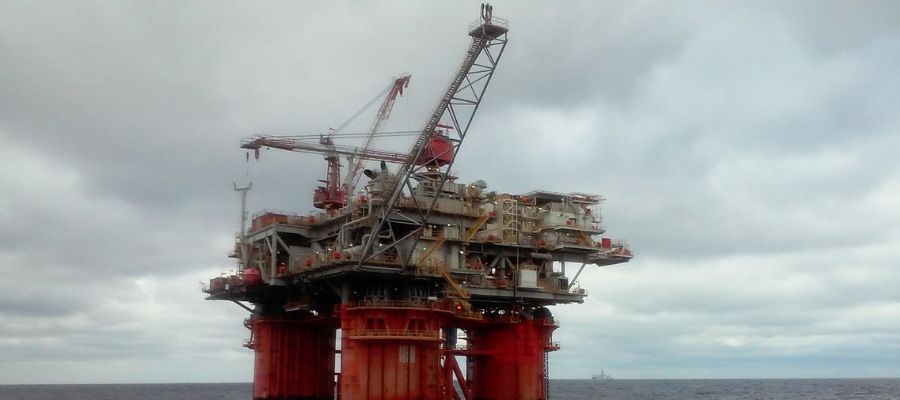
Legal Informer: New Regulations For the Upstream Petroleum Sector
Under the Petroleum Industry Act 2021 (PIA), the Nigerian Upstream Petroleum Regulation Commission (NUPRC) has the power to make regulations. The NUPRC is authorized to develop and issue regulations, rules, guidelines, and standards pertaining to upstream petroleum operations in
Nigeria. These regulations are intended to ensure compliance with the PIA’s provisions and promote the efficient and sustainable development of petroleum resources. The NUPRC’s power to make regulations enables it to establish specific requirements, procedures, and frameworks for various
aspects of upstream activities. These regulations can cover areas such as licensing, exploration, production, environmental protection, health and safety standards, data management, financial matters, and other relevant aspects of the industry. By issuing regulations, the NUPRC can provide clear guidelines and rules for industry participants, ensuring consistency and uniformity in the application of regulations across the upstream sector. These regulations serve as a tool for promoting transparency, accountability, and good governance within the petroleum industry.
In line with the goals of the Petroleum Industry Act and the reform of the upstream petroleum sector, the NUPRC has officially enacted seven new regulations which were signed and issued on 25 May 2023 at the Commission Headquarters.
These regulations aim to enhance the governance and operational framework of the sector. The newly enacted regulations include:
1. Nigeria Upstream Petroleum Measurement Regulations, 2023.
2. Production Curtailment and Domestic Crude Oil Supply Obligation
Regulations, 2023.
3. Frontier Basins Exploration Fund Administration Regulations, 2023.
4. Nigeria Upstream Decommissioning and Abandonment Regulations, 2023.
5. Significant Crude Oil and Gas Discovery Regulations, 2023.
6. Gas Flaring, Venting, and Methane Emission (Prevention of Waste and
Pollution) Regulations, 2023.
7. Nigeria Upstream Petroleum Unitisation Regulations, 2023.
These regulations cover a range of critical aspects such as accurate measurement of petroleum resources, obligations related to curtailing production and ensuring domestic crude oil supply, administration of the Frontier Basins Exploration Fund, proper decommissioning and abandonment
procedures, regulations for significant discoveries of crude oil and gas, prevention of waste and pollution from gas flaring, venting, and methane emissions, as well as regulations governing the unitization of upstream petroleum operations.
The Nigeria Upstream Petroleum Measurement Regulations, 2023 have been introduced to address the existing metering gap in upstream petroleum operations. These regulations aim to promote the widespread deployment of hydrocarbon measurement metering devices, thereby ensuring accurate
measurement of hydrocarbons. The implementation of these regulations will encourage the efficient and accelerated rollout of metering devices across the sector.
The Production Curtailment and Domestic Crude Oil Supply Obligation Regulations, 2023 have been established to outline the rules governing the utilization of produced petroleum concerning both export and domestic crude oil supply obligations, as specified in sections 8(c) and 109 of the Act.
These regulations provide a framework for effectively managing the production levels of petroleum resources and ensuring compliance with obligations related to both the domestic supply and export of crude oil.
The Frontier Basins Exploration Fund Administration Regulations have been enacted to provide a set of rules governing the responsibilities concerning frontier basins in Nigeria. These regulations outline the Commission’s role in administering the Frontier Exploration Fund and establishing guidelines for the exploration and development of petroleum resources in these frontier areas, as outlined in Section 9 of the Petroleum Industry Act.
The Nigeria Upstream Decommissioning and Abandonment Regulations, 2023 have been put in place to ensure that decommissioning and abandonment activities in the upstream petroleum sector adhere to international industry best practices. These regulations establish standards and procedures to be followed during the decommissioning and abandonment of oil and gas facilities, promoting responsible and environmentally sound practices.
The Significant Crude Oil and Gas Discovery Regulations, 2023 aim to facilitate the optimal exploitation of petroleum resources covered by Petroleum Prospecting Licenses issued under the Act. These regulations outline the requirements and processes for effectively harnessing and utilizing significant discoveries of crude oil and gas, ensuring their maximum potential is realized.
The Gas Flaring, Venting, and Methane Emission (Prevention of Waste and Pollution) Regulations, 2023 have been introduced to mitigate the environmental and social impact associated with gas flaring, venting, and fugitive methane emissions. These regulations seek to reduce waste and
pollution by setting guidelines and standards for the prevention and control of gas flaring, venting, and methane emissions, promoting environmental sustainability within the upstream petroleum sector.
The Nigeria Upstream Petroleum Unitisation Regulations, 2023 establish rules, principles, and procedures for the implementation of unitization in the extraction of oil and gas from petroleum reservoirs that extend beyond the boundaries of a single license or lease area. These regulations provide a framework for coordinating operations and sharing resources between multiple licenses or leases, ensuring efficient extraction and optimizing reservoir recovery.
By enacting these regulations, the NUPRC aims to enhance operational efficiency, environmental responsibility, and the overall governance of the upstream petroleum sector in Nigeria.




